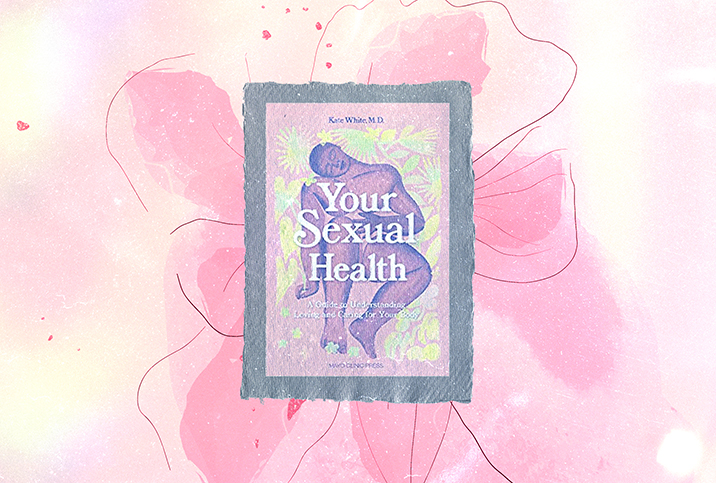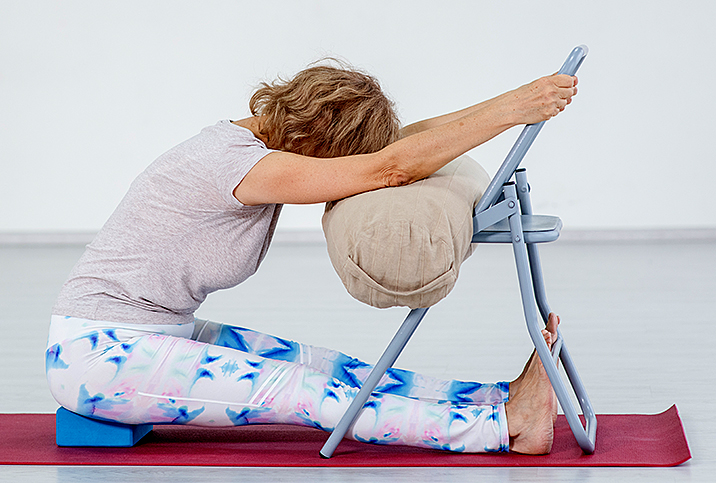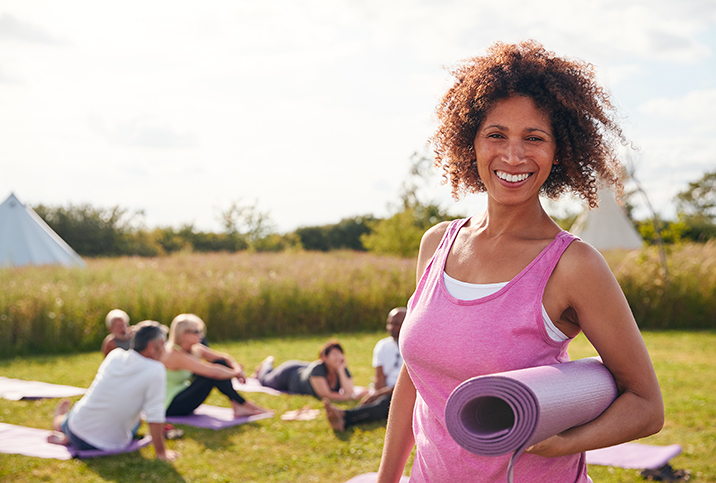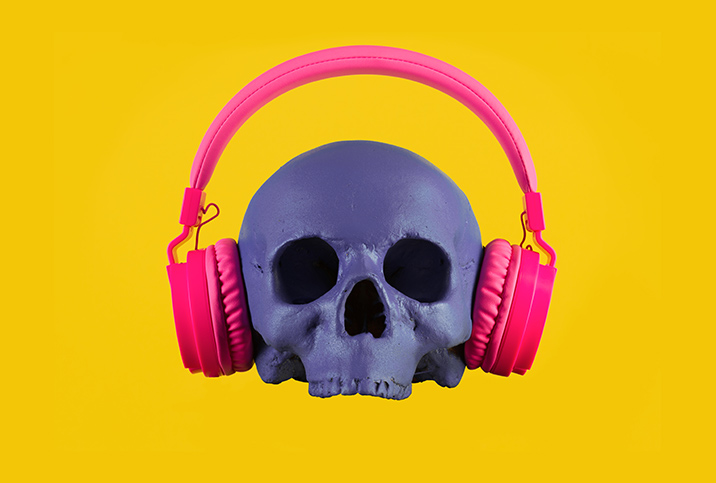Between the Pages: 'Unaging' Looks at 4 Factors That Impact How We Age
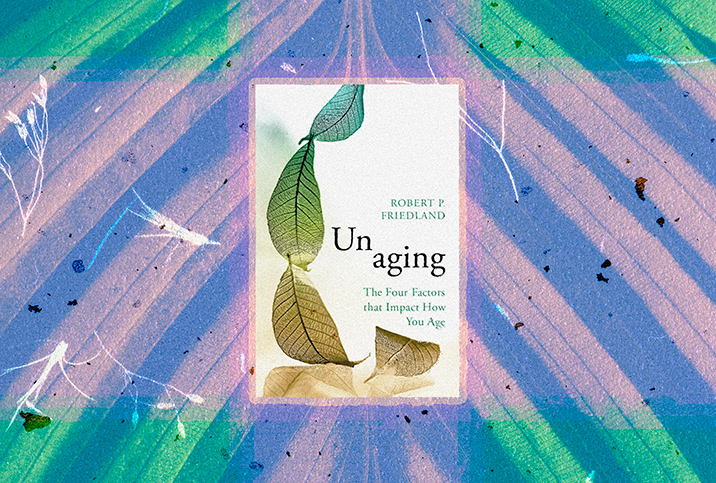
We all know a healthy diet paired with regular exercise is key for overall health. But is that enough to maintain our health and live a quality life into our older days?
The quick answer is no. Watching what you eat and regularly visiting the gym does not guarantee your body is optimized or you'll live to a ripe old age.
Robert P. Friedland, M.D., a clinical and research neurologist, and a professor at the University of Louisville School of Medicine in Kentucky, has spent decades studying how the brain works and how to enhance its health with aging. In his new book, "Unaging: The Four Factors That Impact How You Age," Friedland explains age-related changes in our body and provides useful tools to shift behaviors and activities that can result in better aging.
As an academic and geriatric cognitive behavioral neurologist, Friedland has seen a lot of patients—many of them older than 65—who struggle with memory, judgment, learning, perception and language. His patients frequently suffer from Alzheimer's disease, and Friedland points to research that indicates there are steps people can take to lower their risk of developing Alzheimer's and improve their quality of life as they age.
Friedland emphasized the importance of knowing that what people do—even in early life and midlife—will affect the quality of their aging. He wants his book to give people a deeper understanding of aging, as well as educate doctors on what they should be talking about with their patients.
Editor's note: This interview has been edited for length and clarity.
In your book, you write about the four factors that impact aging: physical, mental, psychological and social. What would you suggest people do—at a bare minimum—in each of these factors to increase their chances of having a better quality of life as they grow old?
Friedland: These four factors, which I call reserves, enhance our resilience because there are declines with aging, and we all face challenges when we get older. We might fall, break a hip, have infections, metabolic problems, diabetes, etcetera. The reserves describe our resilient capacity, what determines the different aspects of our resilience and our ability to do well even though we're getting older.
The cognitive reserve is the health of the brain related to mental activity throughout life. To maintain the health of the brain, hypertension must be managed. It's good to avoid diabetes whenever possible and to have a cognitively rich life both at home and at work. It's good to be involved in learning and not to be a passive observer. For example, reading a book requires attention, while watching television isn't interactive, which means you don't have to be participating.
For physical reserve, it's good to be physically active throughout life. You want to do what you can to maintain the health and fitness of your heart, lungs and so on. It's not only a question of avoiding diseases but maintaining a high fitness level. If your fitness level is better when you get older, you'll be protected from Alzheimer's, as well as from falls, stroke, heart disease, diabetes and many bad things.
The psychological and social factors are related to the quality of your interactions with others. It's good to be involved in the world, interact with others, join organizations and groups, and have a support system. It's actually protective to be married. Older people who are married have a lower risk of Alzheimer's disease.
You wrote in your book that 'how we live influences the action of our genes.' I've noticed that as a result of elevated stress in today's fast-paced world, people start graying in their 30s and 40s, and women start menopause a lot earlier. And yet some of them live a very healthy lifestyle. Why is that, and what can we do to prevent it or turn it around?
There's always been stress, but with events such as Brexit [across Europe], COVID, the war in Ukraine and financial problems, there is an opportunity for more stress, which influences the endocrine system, changing the brain's metabolism. The key thing is where we pay attention. If we pay attention to losses, disability and anger, and if we hold on to regret, ferocity and guilt, that can affect the brain, the stomach, the liver, blood pressure and so on. It's good to focus on the present moment because usually, what we're anxious, concerned and stressed about is not happening right now. It's valuable to understand this and appreciate the beauty of the moment you have available.
Aging is not inevitable. It doesn't happen to everyone. Princess Diana died at 37. She didn't get to be old. So someone at 62 who is concerned about not being able to play tennis at the same level due to knee pain is unfortunate. But only about 85 percent of people are still alive 65 years after they were born.
For instance, you may have a habit of watching the news every night before going to bed, hearing about all the disasters. I'm not suggesting that we all ignore the world, but there's nothing we can do about most of those disasters. One hundred years ago, we didn't know that. Now everything is so immediate. It's unnecessary to have all of this in our consciousness, especially when you're about to go to sleep.
I recommend not having a television in the bedroom and using time before bed to read. Meditation is very helpful because it's a practice of letting things go. You have your mind open, and you can be aware and receptive of your thoughts, and you're allowing them to pass on so they're not constantly rehearsed.
That ties to my next question about the importance of a positive attitude, being present and grateful. How does that support your health?
People get so concerned about little things like rain or broken traffic lights when every moment is an opportunity to appreciate being alive, interact with other people and yourself, and see what you can do to improve the quality of your own life.
Whether you have a positive or negative outlook, our belief influences our body, and our body influences our beliefs. We need to take care of our bodies, and that makes a difference in what we do.
Why are intimate social contacts so important for health with aging?
We're primates, just like orangutans, gorillas and chimpanzees. We are great apes. If you see monkeys, they're always touching each other. Our natural activity is touch. It has enormous influences on the immune system and on how we feel.
A study in mice has shown that baby mice who get more affection from the mother, such as kissing, licking and physical contact, have better memory when they get older. The more affection they get, the better that improves their aging.
This contact affects the endocrine system. When we have stress, we have hormones that are secreted in response to stress. What's important is not only the production of these hormones but how they resolve. The nature of physical contact influences how that happens in a way that more isolated people who have less contact, especially in childhood, have an impairment of their resolution or their recovery after stress.












